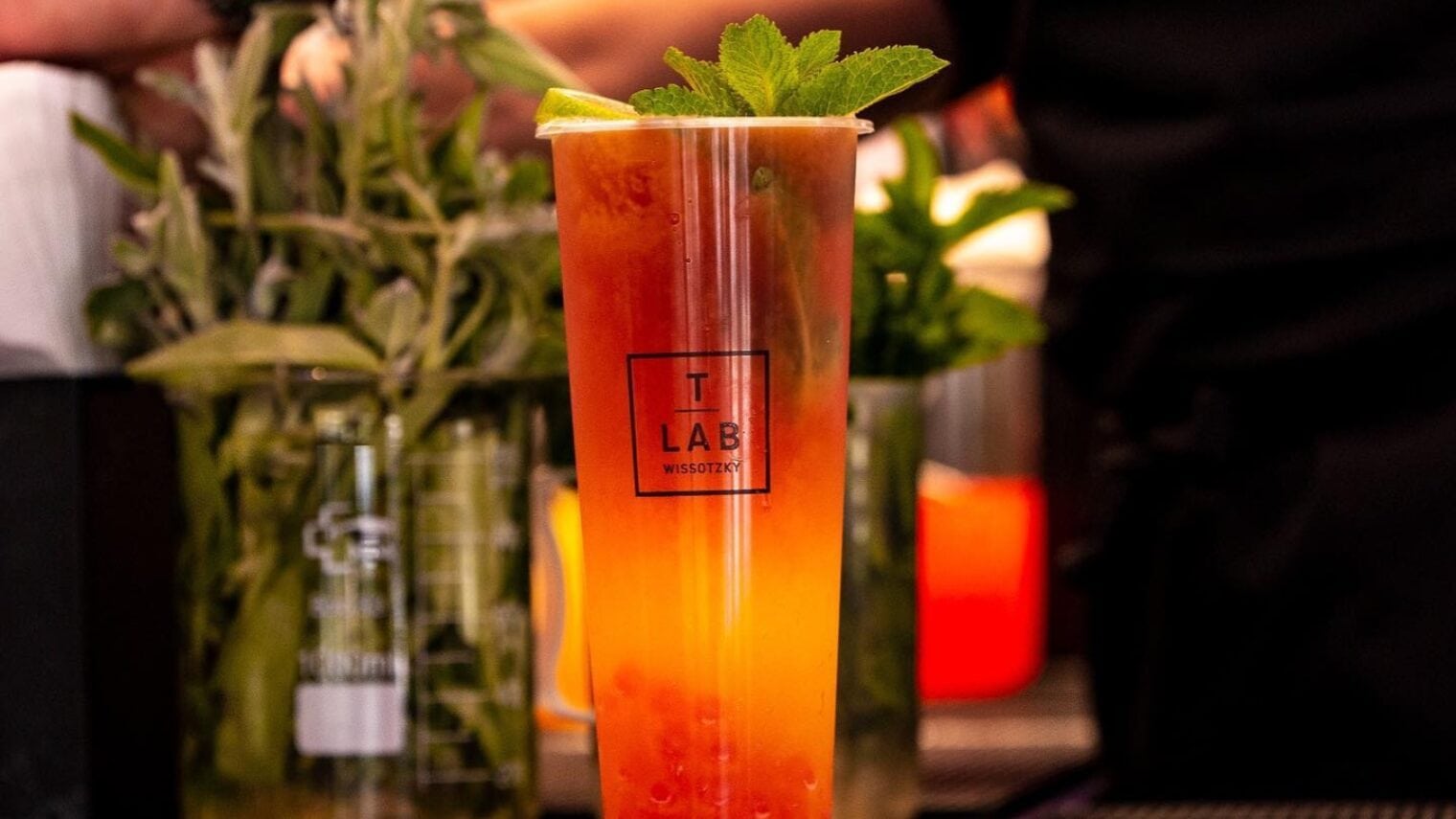Wissotzky’s T LAB on trendy Hashmonaim Street in Tel Aviv is a Willy Wonka-like experience for tea lovers. This is where mixologists shake creative tea-based drinks behind a large futuristic style bar, to a pumping background beat.
When ISRAEL21c visited, a watermelon iced tea was the special of the day: A refreshing blend of watermelon, green tea, hibiscus, lemon, mint and aloe vera bubbles.
Regular menu options include iced matcha lavender latte, Tiger Boba (Earl Grey, caramel, whipped cream and tapioca bubbles) and a non-alcoholic mojito based on green tea, mint, lemon and soda.
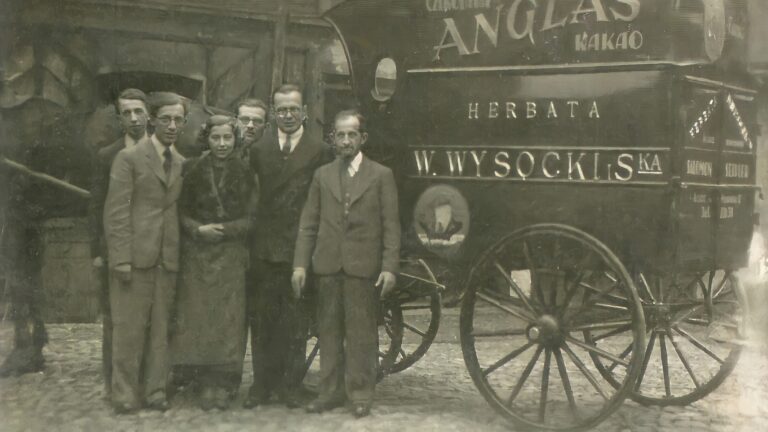
Lining the shelves are brightly labeled wine bottles containing tea infusions for cocktails or non-alcoholic drinks. This is Wissotzky’s T LAB Mixology range, which comes in four flavors: Fresh Green (green tea, lemon and mint), Orange Adventure (black tea, orange and spices), Purple Passion (red berries) and Green Optimism (green tea, lime and lemon verbena).
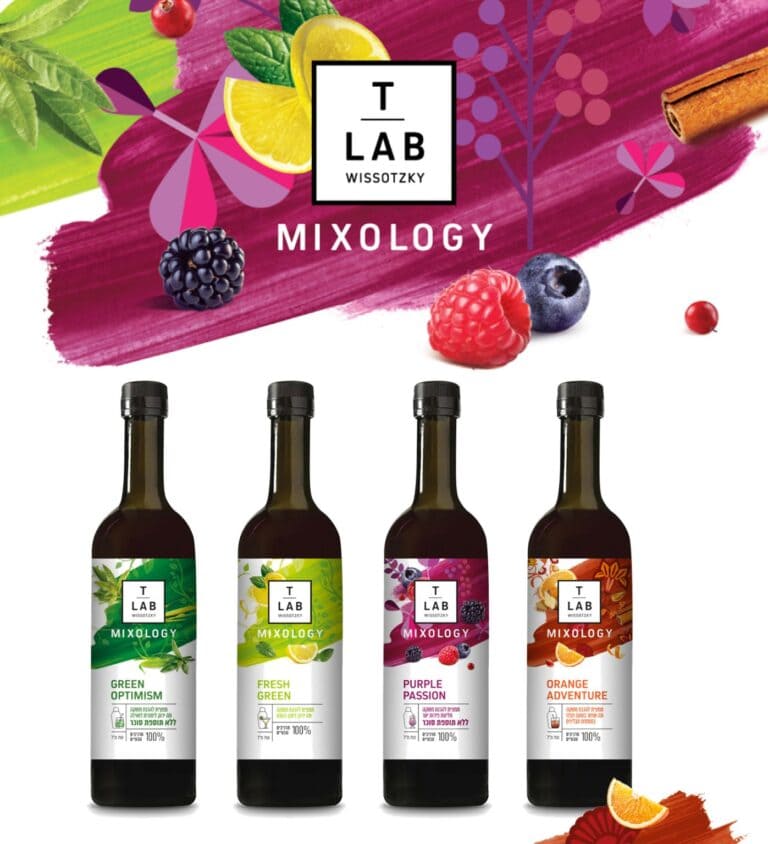
Alcoholic cocktails include T LAB Gin & Tea, a ready-made mix of gin, black tea, hibiscus, roses and strawberries.
So how come these items don’t appear on our local store shelves?
Schlomi Melki, international marketing director at Wissotzky, tells ISRAEL21c that aside from T LAB — which also has branches at Tel Aviv’s Azrieli Mall in Tel Aviv and Petah Tikva’s Ofer Grand Mall — Mixology products are used in hotels, restaurants and cafes.
In addition, the company were develops products for export to specific target countries.
“We tailor-make innovative tea-based products – 82 flavors in total – for specific markets according to local tastes,” he explains.
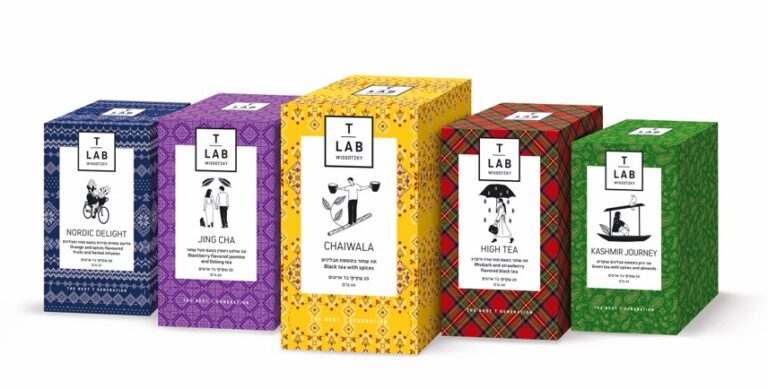
They love it in Japan
This formula has been a success, especially in Japan.
“We wouldn’t dream of competing there against the local green tea brands, which are a heritage item. Instead we launched fruit and mint teas,” says Melki.
Unlike Israelis, he explains, the Japanese don’t like tea spiced with ginger or cinnamon. This fall, Almond Love, an almond-blossom herbal tea that can be served hot or cold, will be added to the range.
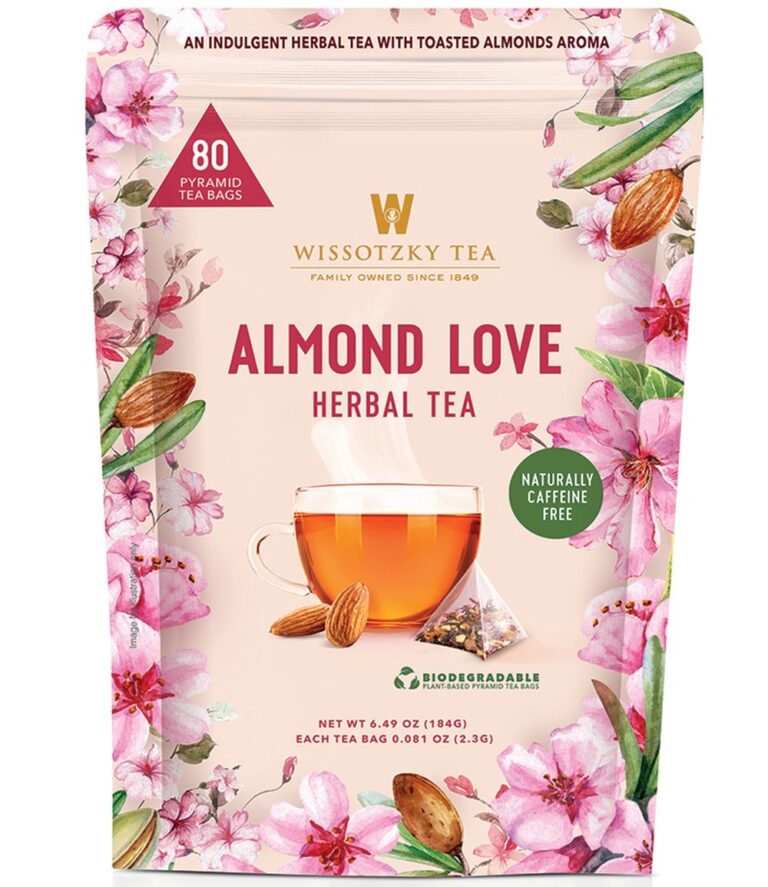
There is also a following in Japan for Wissotzky’s large vintage-style tea tins containing 130 bags in different flavors. The designs are changed every few months and “reflect the status of tea in Asian culture as an artform within a refined aesthetic culture,” says Melki.
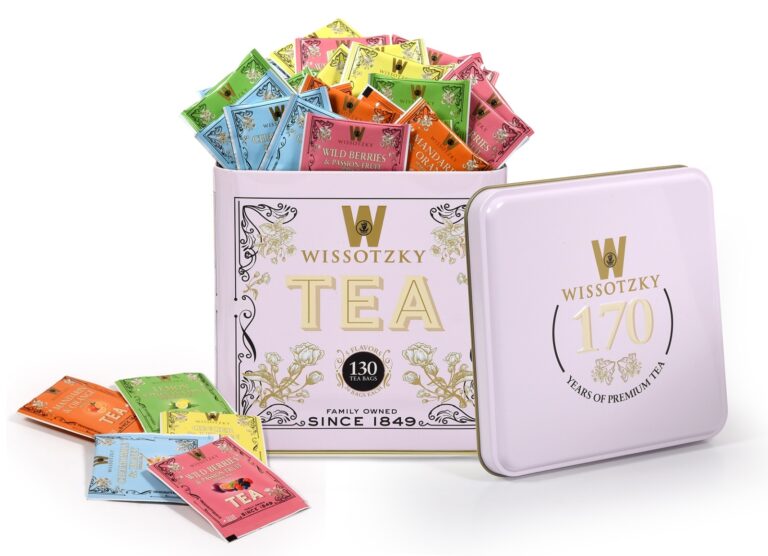
In the US and Canada, Costco sells Wissotzky’s Signature Collection of silky pyramid tea sachets (this allows for easier and faster steeping as water permeates more easily) that contain coarse loose tea leaves, fruit and herbs and come in resealable pouch bags (also not available in Israel).
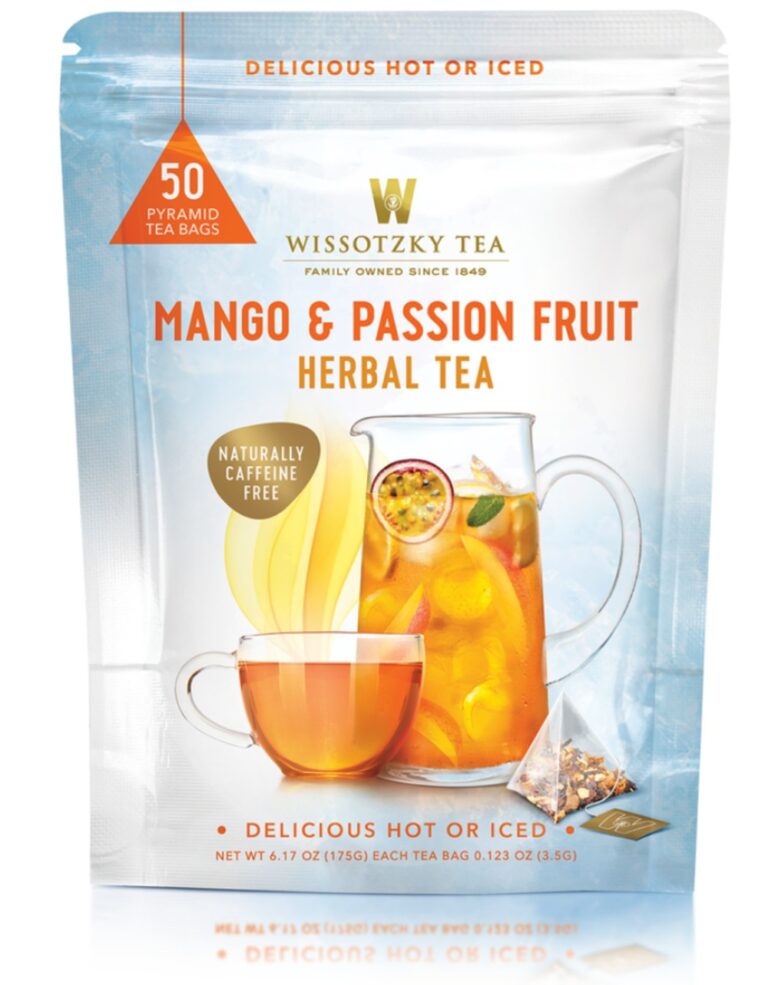
Catering to the wellness trend in North America, popular tea choices there are ginger and turmeric and the zero-calorie and caffeine-free Mixology tea infusions.
And what about Israelis? Aside from the traditional tea selection, the younger generation, Melki says, love the Chai line in flavors such as salted caramel, mocha-chocolate and vanilla and cardamom.
Wissotzky tea is also distributed in Europe, the UK, Australia and South America.
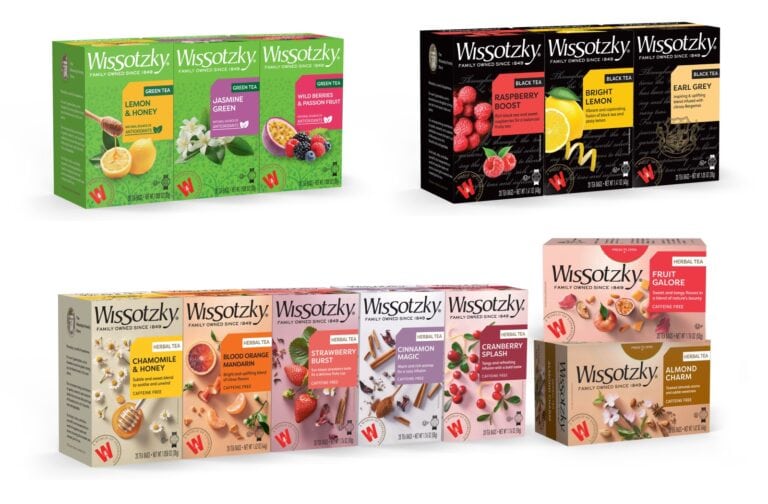
Going global is nothing new
Kalman Ze’ev Wissotzky founded the company’s first tea factory in Russia in 1849, and was given the unofficial title “the Russian king of tea.”
No doubt he would be happy that the company he founded is still family owned and has a strong global presence.
Even in the early years as Wissotzky tea grew to dominate the Russian Empire and became an official purveyor to the Czar, it had international aspirations. Offices were opened in different parts of the world (cultural Zionism founder Ahad Ha’am, notably, ran the London office) and plantations cultivated in India and Ceylon.
The Russian backbone of the business was not to last. In 1917, the Russian Revolution and move by the Bolsheviks to nationalize private businesses forced the family to shutter its factories and move production to Poland.
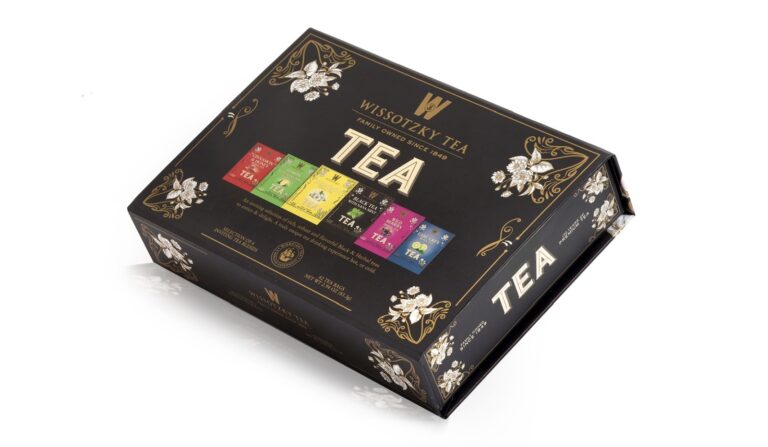
In 1936, with war on the horizon, the company, then under the leadership of Shimon Seidler (related to the Wissotzky family by marriage) fortuitously moved the factory to Allenby Street in Tel Aviv, betting on a market for tea amongst British Mandate soldiers.
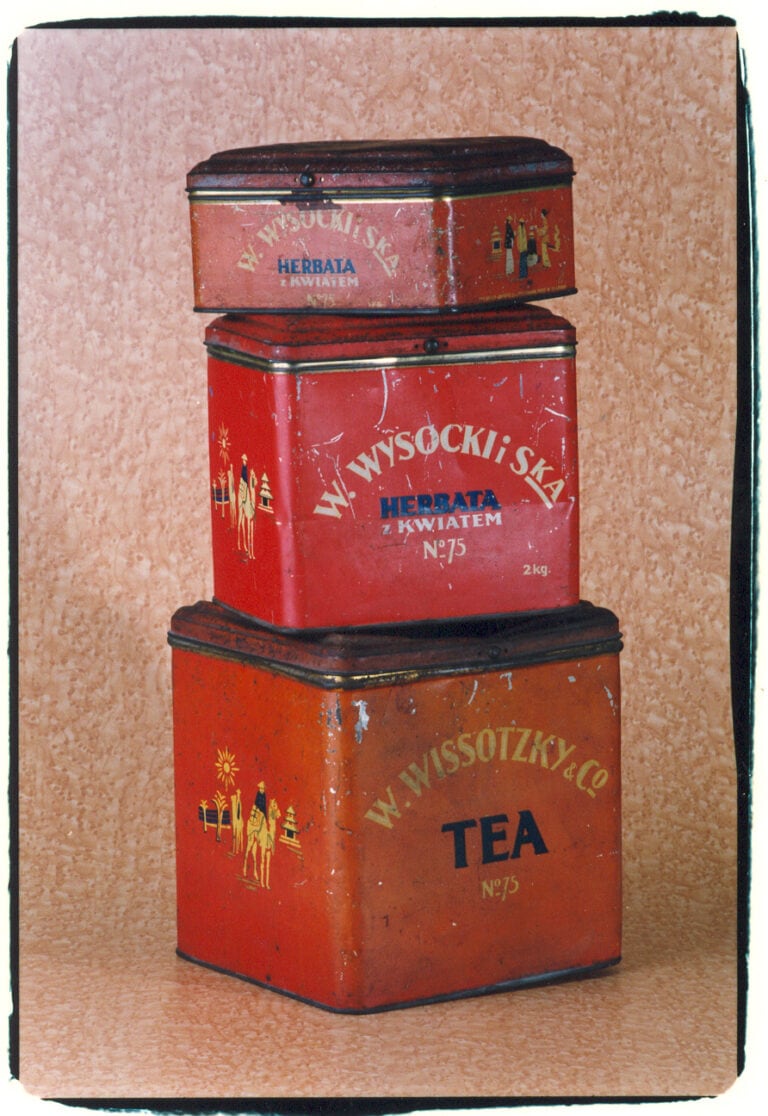
Wissotzky flourished over the decades under the Seidler branch of the family and today has 76 percent of the local market. It also gained a strong foothold in the kosher food sector in Europe and North America.
Ida Seidler (the late mother of the current, fifth-generation owner, Shalom Seidler) took over in the 1950s and was behind the purchase of the building on Hashmonaim Street, which serves as company headquarters today and where the flagship T-Lab store is situated on street level.
Until the 2000s, the street was dominated by wholesale businesses. Today it has an artisanal bakery, upscale restaurants and the TLV Fashion Mall, above which rise the glitzy Gindi apartment towers.
Tea going into the future
Although Melki recognizes the traditional aspect of tea, which makes people “faithful to their brand and in love with the same particular flavors that they want to enjoy every day,” there is also a growing incorporation of tea into different food categories and the company shares recipes on social media.
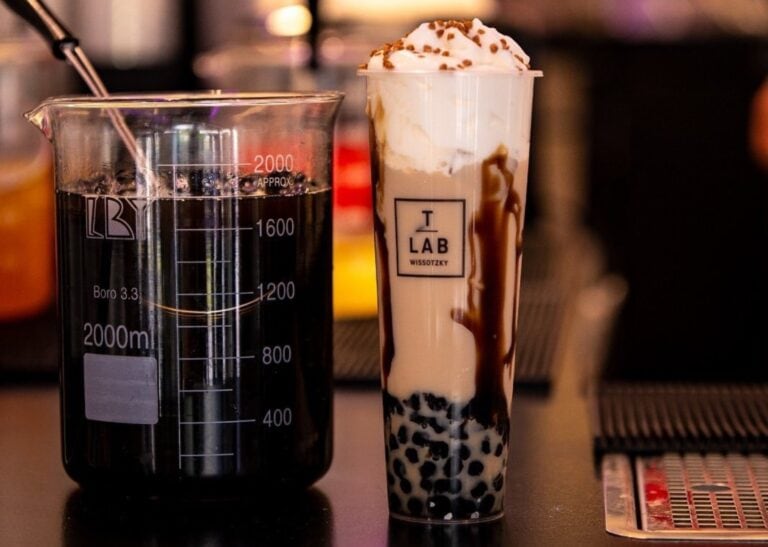
There is also a place for tea in the wellness market, he points out, as can be seen in Wissotzky’s Good Night line containing chamomile and lavender to foster restful sleep.
Going further into the pharmaceutical sphere, the company launched an innovative Stay Well range of tea bags. They have a green-tea base with additions such as lemongrass, ginger and vitamins C and D.
“It’s a big challenge to maintain the efficacy of vitamins in boiling water but we succeeded to do this,” says Melki. Good Night and Stay Well are available in Israel.
During the current war, Wissotzky launched a tea truck, distributing a variety of teas, infusions and cookies, which crisscrosses the country to bring a moment of relief and indulgence to soldiers on military bases, and to evacuated families.
Melki then goes back to mentioning the iconic Wissotzky logo which includes the year the company was founded.
“Next year is the company’s 175th anniversary and the symbolism of the ship in the logo is still as relevant as it was then. We are always looking to explore new territories and under the creativity and foresight of Shalom Seidler, we are succeeding.”




